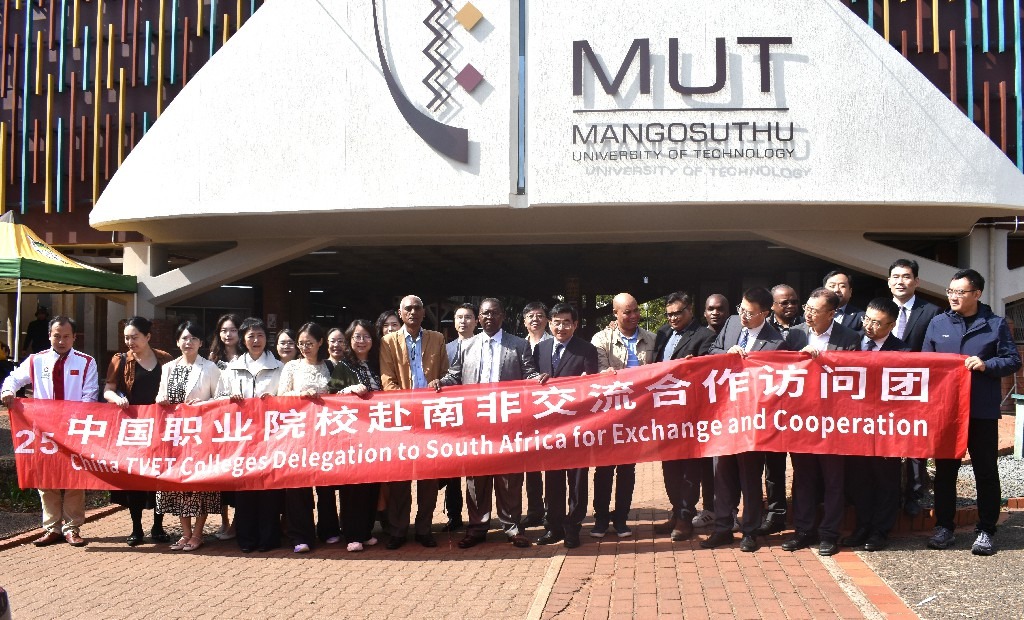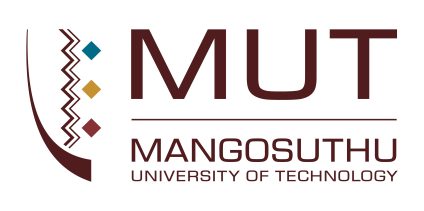
While it is true that MUT’s staff, particularly the Vice-Chancellor and Principal, Professor Nokuthula Sibiya, are criss-crossing the oceans, and landing at international airports and whisked to higher education institutions where they are crafting good relations that will benefit the Institution and its students, a major event happened at the University’s main campus this week. On August 26, 2025, MUT hosted a delegation from China, a founding BRICS member.
The delegation from China was called BRICS Skills Development, Applied Technology & Innovation Working Group. This was a high-level meeting between MUT and a joint delegation from the GoDigitalSA Foundation and the BRICS Skills Development, Applied Technology & Innovation Working Group. The delegation was from the BRICS Skills Development, Applied Technology & Innovation Working Group (SDTIWG). Professor Alfred Msomi, the Dean of the Faculty of Applied and Health Sciences, said the purpose of the meeting was to strengthen collaborative partnerships in skills development, applied technology, and innovation. The visit also sought to position MUT as an anchor institution for BRICS Future Skills Training Bases in South Africa. The visit included formal deliberations and insightful presentations from both MUT and visiting Chinese delegations. The discussions focused on reaffirming MUT’s role as a strategic partner within the BRICS network. A key outcome was the signing of Memoranda of Understanding (MoUs) with the following Chinese institutions: BRICS Academy of Skills Development and Technology Innovation (Xiamen), Changzhou College of Information Technology, Shanghai College of Science and Technology, Wuhan Vocational College of Software & Engineering, Yellow River Conservancy Technical University and Zhengzhou Railway Vocational & Technical College.
The nature of the agreements is collaborative partnerships focused on cross-border cooperation in future skills, vocational education, and applied research.
The delegation also took a tour of MUT’s facilities and held a working luncheon, allowing them to experience the university’s ecosystem firsthand and discuss concrete next steps for the partnership.
According to Professor Msomi, MUT is set to benefit significantly by being positioned as a strategic anchor Institution for BRICS in South Africa. Professor Msomi said that this would enhance MUT’s international stature and partnerships; lead to the establishment of a BRICS Future Skills Training Base at MUT, “likely with shared investments from BRICS partners”; enable student and staff exchanges with prestigious Chinese institutions. Another expected outcome of the visit will be the facilitation of capacity-building programmes in emerging fields, such as AI, data science, and smart infrastructure, for MUT’s staff and students. Professor Msomi also said that the visit would provide opportunities for joint research collaborations, curriculum development, and skills competitions; and position Umlazi and KwaZulu-Natal as critical hubs in the BRICS+ knowledge network, bringing prestige and potential economic development to the region.
The Chinese delegation also, as part of the purpose for the visit, assessed MUT’s suitability as a strategic partner. “They checked the University’s facilities and dynamic ecosystem to evaluate its capacity to host a BRICS Future Skills Training Base and support high-level collaborative projects,” said Professor Msomi. The delegation took a “tour of MUT’s facilities that are potential building for the envisioned skills-based workshop, or buildings, which would typically include laboratories, technical workshops, research centres, and other academic facilities.
Sandile Mahlaba, MUT alumnus, Patron & Founder of the GoDigitalSA Foundation, was instrumental in the inclusion of MUT in the project. Professor Msomi said that the immediate next steps on this visit are recommendations, including forming joint committees, launching pilot exchange programmes, preparing infrastructure, and creating an annual engagement calendar to ensure the partnership’s sustainability. “The goal is to unlock the transformative potential of these partnerships for the benefit of students, educators, and communities across South Africa and the wider BRICS community,” concluded Professor Msomi.
